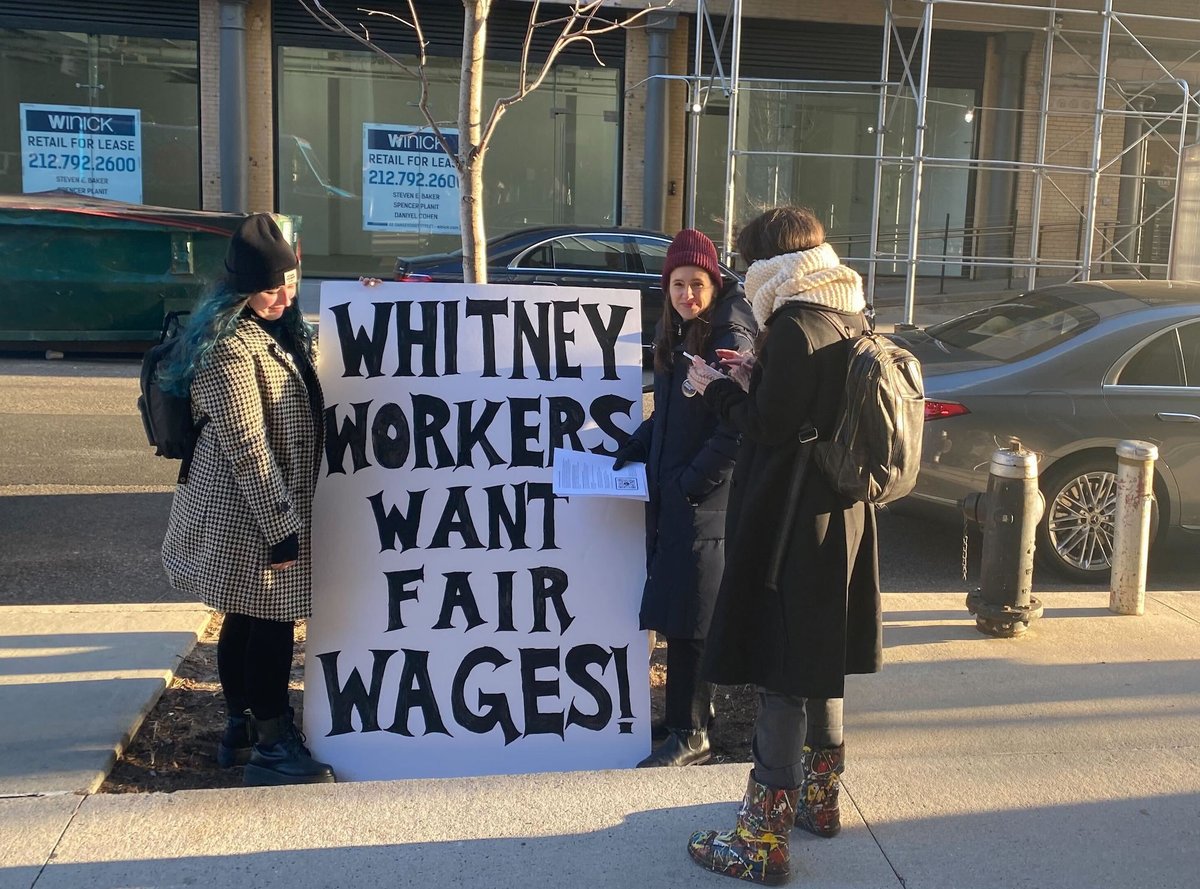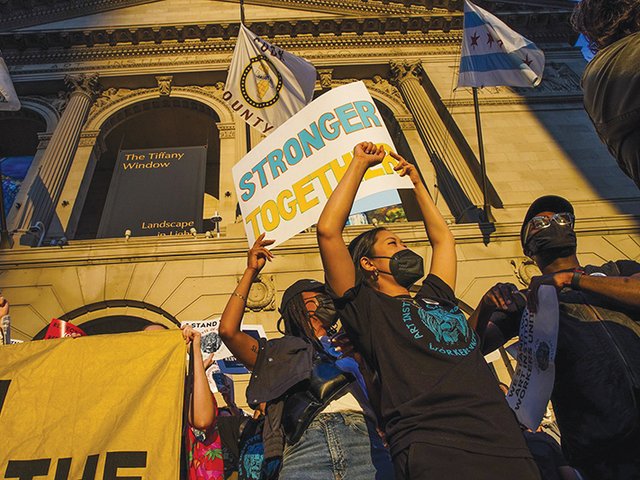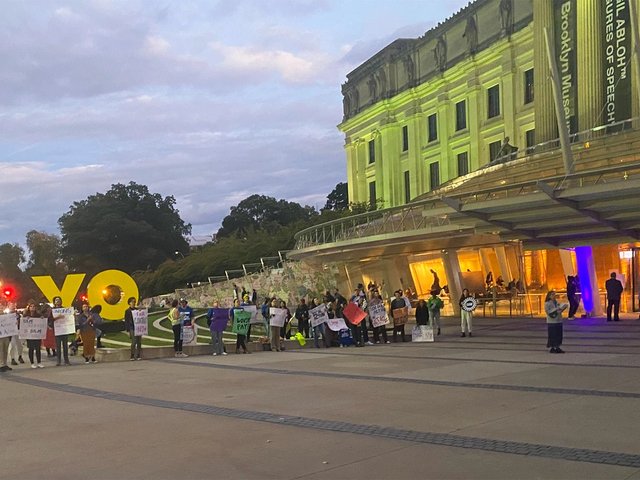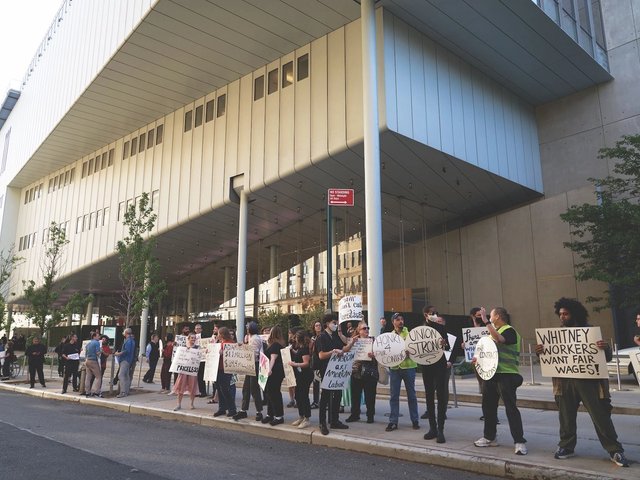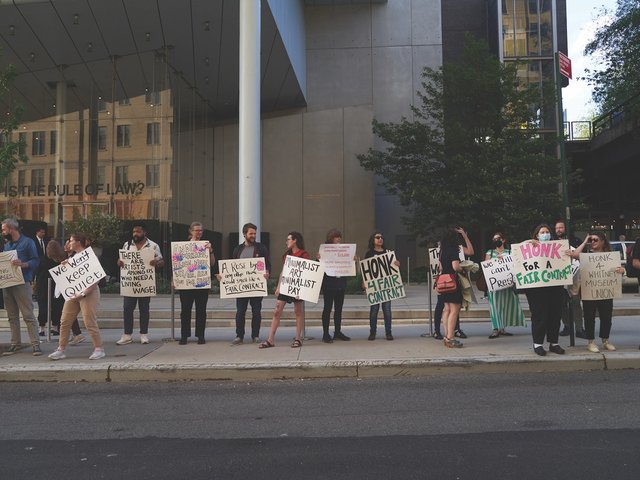Unionised workers at the Whitney Museum of American Art protested administrators’ slowness in contract negotiations tonight (29 March) during an invite-only opening reception for the 2022 Whitney Biennial, handing out leaflets to museum patrons as they entered the museum. Workers hope the visibility of the protest during celebrations for the institution’s most high-profile exhibition will move the administration to take more meaningful steps toward agreeing on a new contract for the union's more than 180 members.
According to a statement from the Whitney union, which formed with the Technical, Office and Professional Union Local 2110 UAW and includes curators, conservators, editors, porters, visitor service staff members and educators, half the staff earn less than $20 per hour and many workers are classified as either part-time or temporary by the museum, so that they have little job security and receive no benefits.
“They have these beautiful events, but they don’t pay their workers very well at all. They seem to be more concerned with their brand and their image than what they really are like and the way they treat people,” Maida Rosenstein, the president of Local 2110 UAW, tells The Art Newspaper. “We’ve been completely ignored by the museum leadership—they've foisted an outside attorney and one human resources person on us. No decision-maker has reached out to the union in any way or has come to the table at all.”
Museums nationwide significantly downsized their workforces amid the outbreak of the Covid-19 pandemic in spring 2020, primarily targeting entry-level workers. Some staff members at the Whitney were rehired later that summer but placed on an indefinite “temporary” work status.
“The museum has yet to respond to wage proposals we made months ago,” says Jessica Pepe, an associate registrar at the Whitney, in a statement. “Our priorities are to establish a living wage floor for the positions that have been classified as entry-level, and raise pay rates for mid-level and professional positions at the museum to a sustainable level that allows us to have real careers.”
A spokesperson for the Whitney did not respond to a request for comment by press time.
The slowness of contract negotiations between unions and management have prompted protests and expressions of frustrations at several institutions recently, including the Museum of Fine Arts in Boston, where workers staged a one-day strike, and the Museum of Contemporary Art in Los Angeles. The pandemic has accelerated a labour movement that was already sweeping the museum sector in the US.
“There’s been a groundswell of organising among museum workers and an overarching situation where a lot of these institutions are very wealthy, they have corporate boards, they operate very prestigious events and yet a hidden secret is how low-paid the workers are,” says Rosenstein. “These museums are going to have to come to terms with the fact that they need to pay people more fairly and treat people more fairly.”
The museum provided the following statement via email shortly after this publication: “The Whitney enjoys a longstanding and productive working relationship with the four other unions that have been established at the Museum. The Whitney voluntarily welcomed Local 2110 last summer and has been negotiating with them in good faith since then. We’ve already made progress on a number of points. We look forward to continuing our discussions at our regularly scheduled meeting with them next Tuesday, April 5.”


